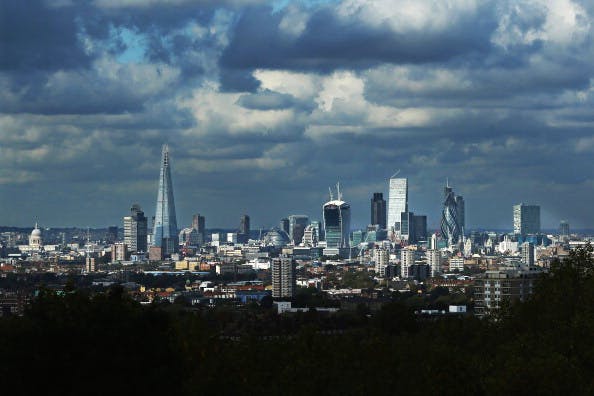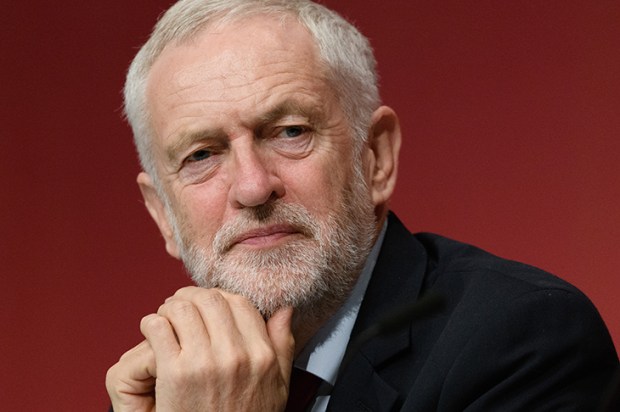How does one join the Liberal Metro-politan Elite? What should be the qualifications? I must be an LME member because literally thousands of my readers have (over the years) told me so. They don’t mean it kindly, but I take it kindly. ‘Elite’ means ‘the best’, I should hate to be called illiberal, and I have a nice flat near central London.
How, though, do we LMEs maintain the exclusivity of our club? The 48 per cent of voters who voted Remain will soon be hammering on our door for admission, plus (I’ll bet) a fair few repentant former Leavers too. But the elite cannot by definition comprise more than 49 per cent of the population, and as someone once observed: ‘Think how stupid the average person is, and realise half of them are stupider than that.’ We’d be swamped.
I have long proposed that membership of the LME should be by invitation only. For an exclusive club this is the only way. However, following Labour’s lead, I think we might form a Liberal Metropolitan Elite Supporters grouping — a sort of penumbra to the elite, to cheer us from the outside. We would not let them in, though, or let them vote.
And my peregrinations this autumn to the party conferences are persuading me that our mainstream political parties, too, should become more picky about their grassroots. Who you keep out should be more important than how many you let in, and the recent expansion in party membership is much to be regretted. All three parties would benefit from shrinking their memberships.
It seems like forever that we in British political commentary have been bewailing the citizenry’s waning enthusiasm for joining political parties. Now, and all at once, the long, slow decline of national party membership from its peak in the 1950s has been thrown into reverse. Ordinary people are subscribing again in substantial numbers.
And look what happens. The Liberal Democratic party is reverting to the soft-left, pavement-pounding, leaflet-delivering localist agitpropery in which it was mired before coalition. The Tories are being threatened by that most ghastly of prospects: a coming home of all the loons who left to join Ukip. And Labour, urged on by hundreds of thousands of new crackpot-socialist recruits, has gone stark raving bonkers.
The paradox of internal party democracy is that it exerts a profoundly anti-democratic influence on policy. By placing power in the hands of enthusiasts it tends to isolate a party from what the apathetic majority of the citizenry think; and the apathetic majority are the people a mainstream party needs to bear in mind if it is to win elections.
A party experiencing a sudden rush of would-be activists should be very afraid: there is probably something wrong with them. The danger is particularly intense when — as is the case today — a wholesale reselection of prospective parliamentary candidates by all three parties looms. The boundary changes (and the reduction in the number of MPs) to which this government is committed will see to that. For both Labour and the Conservatives, though for different reasons, these reselections will come at an unfortunate time. Unless (per impossibile) Theresa May has sorted everything out by then, the Tories will be obsessing about what Brexit means. Feelings, and ill-feeling, will be running high. Conservative activists will be divided between supporters of ‘hard Brexit’, supporters of ‘soft Brexit’ and Conservatives who just want to call the whole thing off. Reselections will be horrible, bitter occasions. And I believe that by then — unless Conservative Central Office is careful — the membership will have been considerably swollen by former Ukip supporters coming back, many with the specific intention of ‘keeping Theresa honest’.
Paul Sykes, the wealthy former Tory donor who defected to Ukip, has had the gall to try to dictate the terms on which he might return. The man who helped fund an outfit which put up candidates against the Conservative party at the last election is braying that ‘if we’ (by which he means the hard Brexiteers) ‘are betrayed, the people of Britain will be able to see our campaign posters from the moon’. The new Tory chairman, Sir Patrick McLoughlin, should tell him it is for the Conservative party, not Mr Sykes, to dictate the terms of his return.
Here’s a presentiment. Nigel Farage will abandon the sinking hulk of Ukip, and team up with that party’s backer, Aaron Banks, to form an organisation Mr Banks has already described. They will (I predict) insist it is not a party. They’ll call it a ‘movement’ and will not (I predict) run candidates: not, at least, against the Conservative party. On that basis they will demand that Tory members be allowed to join their movement, as we’ve been able to join (say) the Bow Group, Bright Blue, the Tory Reform Group or No Turning Back.
Nukip should be sent packing. If necessary Ukip should be declared a proscribed organisation, and recent membership an automatic disqualification. Otherwise we may well see in the Tory party a reflection of what Labour has seen with Momentum. I believe (on no evidence) that Nigel Farage’s long-held ambition is to be a Conservative MP. The very thought curdles milk. Heaven defend us from rapidly expanding Conservative grassroots: it is all too clear what compost will be nourishing them.
The Parliamentary Labour Party knows the danger well. As many as 300,000 new members have joined since Jeremy Corbyn became leader, more than doubling Labour’s membership. Can anyone but a hardcore socialist deny that the party would be in a better place today if they never had?
So let the Liberal Metropolitan Elite lead the way. No enthusiasts, thank you. Or we Conservatives may look back to another time — a mellow time when the average age of party activists grew a year older with every passing year, while Lady Fortescue was literally wheeled out to judge the marrows, and Colonel Smythe stuffed envelopes he was now too lame to deliver — and sigh ‘Those were the days.’ God spare our parties from the people joining them.
Got something to add? Join the discussion and comment below.
Get 10 issues for just $10
Subscribe to The Spectator Australia today for the next 10 magazine issues, plus full online access, for just $10.















Comments
Don't miss out
Join the conversation with other Spectator Australia readers. Subscribe to leave a comment.
SUBSCRIBEAlready a subscriber? Log in